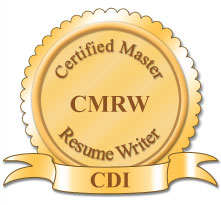
The Untrue Story…
This weekend I watched The Big Sick, a movie based on a true story about a Pakistani comedian, Kumail Nanjiani, and his white girlfriend, Emily Gordon. Kumail and Emily’s real story is a truly great love story. They were dating for six months when Emily suddenly fell ill—six months in which Kumail did not tell his family about Emily, fearing they would disown him. Then, while Emily was in a medically induced coma, Kumail recognized the level of his love for Emily. Upon her awakening, he asked her to marry him. They were wed two months later, in a Pakistani wedding, despite his parents’ protests and “How could you do this to us?” attitude.
This story seems good enough for Hollywood to me, but to create more drama, Kumail and Emily (the authors of the screenplay about their own lives) threw a huge breakup fight into the mix—the day before Emily was hospitalized. They also made up fights between Kumail and Emily’s parents, as well as a race-related incident at one of Kumail’s shows where Emily’s mother went to (verbal) battle with a heckler. Click here to read about the real story.
Hollywood Drama
Hollywood movies require drama, and extra drama is what writers Kumail and Emily delivered. To me, it made their story less believable. I would have preferred the true story.
I started doing research on other movies “based on true stories.” Not surprisingly, fictionalized fights and arguments were often added in for dramatic effect. For example, in Only the Brave, the leader of the team did not really have an argument with his wife the night before the big fire that killed him. And he did not give any pushback when one of his team members—the one who ultimately survived—told him he wanted to move to a different team that would provide him more stability. He was supportive from the get-go. But the movie depicted two fights and their ultimate resolution. Click here for more about the true account.
In Marshall, fights were likewise inserted for dramatic effect. The real-life nephew of the lawyer Sam Friedman has said “that the moment in the movie that is most ‘absurd’ is when Sam tells Thurgood Marshall that he can’t afford to lose the case, to which Marshall responds twice, ‘F*** you, Sam Friedman.’” (Click to learn what really happened.) In real life, Marshall would never have said such a thing. Furthermore, Marshall did not come close to getting into a bar fight, and Friedman was never actually attacked for working on the case of Joseph Spell, as depicted in the movie.
Addicted to Drama?
I have more questions than answers about the embellishments made to these “true” stories. Are we as a society so addicted to drama that we need additional conflict on top of what already exists in the world? Would we really not go to see movies that were more even-keeled? Or might we find them refreshing?
Do we like watching other people’s drama so we feel better about our own? Do we like it because we learn from the movies that conflict can be resolved and that there is good will available if we look for it in others and in ourselves?
I understand that fights are part of life and relationships. I appreciate real life, and sometimes even fictionalized, examples of conflict and resolution. But I also appreciate truth, and I don’t like gratuitous drama any more than I like gratuitous violence. I wish that Hollywood would cut some of the unnecessary emotional wringers that writers put us through.
I am also asking myself, “How much unnecessary drama have I created in my own life? Am I making my own true story more of a roller coaster than it has to be?”
The holiday season is a good time to shed light on where we might be embellishing our own stories with no real positive effect. I wish for us all that we pick our fights wisely and fight not to break our relationships apart, but to make them stronger.












Hi Brenda,
Your post is truly enlightening as I assumed most true stories’ fights were not embellished.
I wonder if Hollywood directors are the ones who are addicted to violence and abuse. The inserting of the word “fxxx” has escalated to epidemic proportions since 1986 or so.
Thank you for shedding light on a serious problem. Movies can have a huge impact on people. If we get the idea that everyone is fighting and arguing and living in discord, it might influence us to do the same. This sounds lame but I think it happens.
Before my dear mom passed unexpectedly after a surprise illness in 2015, she often kept her TV on the Hallmark channel. I joked she was living in a fairytale bubble, far away from CNN etc. In retrospect, I think she was doing the best thing.
Happy Holidays,
Tara
I’m so glad my article made such an impact, Tara! I believe there’s harm in the “happily ever after” stories too, which make us think our fights are not okay or that something is wrong if we’re fighting. My vote is for somewhere in between. This society is so affected by what we see over and over on the big screen!
I feel exactly the same way, Brenda. The one that really struck me was Hidden Figures, based on the true story of three African American female mathematicians who worked at NASA in the 1960s. It feels like a slap in the face to tell a woman like Katherine Johnson that her story isn’t compelling enough at face value, that it must be embellished with scenes like her boss striding down the hallway surrounded by Katherine and her co-workers to smash the “Whites Only” bathroom sign when he found out that Katherine was running to another building a half-mile away several times a day to use the only “colored” restroom on the NASA campus. It’s a great visual – and a powerful piece of storytelling – but it never happened. In reality, Katherine simply ignored the “Whites Only” sign at the closest ladies room to her office and used it anyway, hoping she wouldn’t get caught… and eventually – and uneventfully – the sign came down as culture change swept through NASA. The reality makes me love Katherine even more… her determination and self-sufficiency in overcoming the obstacle on her own rather than relying on a white, male higher-up to solve her issue for her. Adding false drama where none was needed diminished the experience of that film for me. There is power in authenticity!
Thank you for sharing that, Kathi. I’m going to go read up on the truth vs. fiction in that film now. I had assumed that was a true part of the story! Like there isn’t enough to be appalled about regarding racial discrimination, we have to make things up?